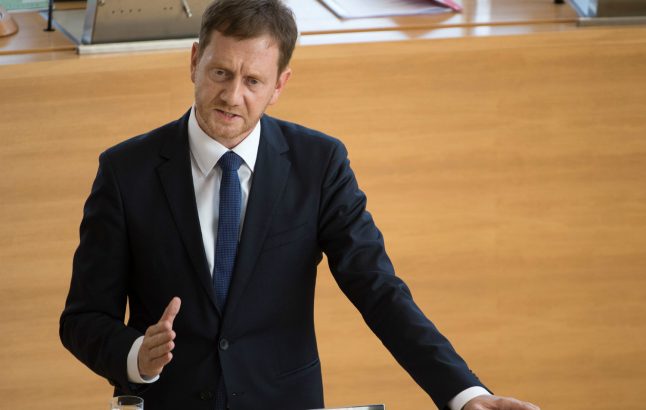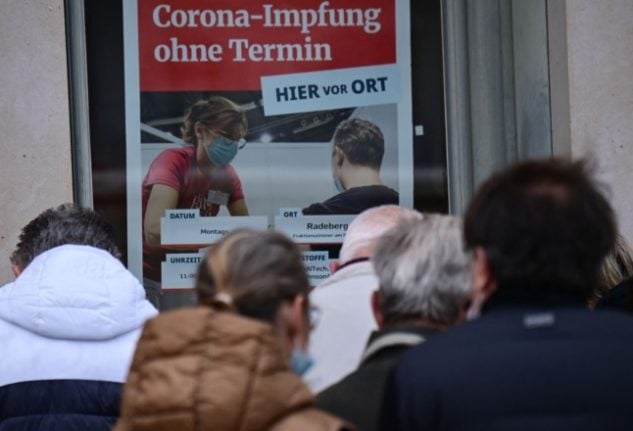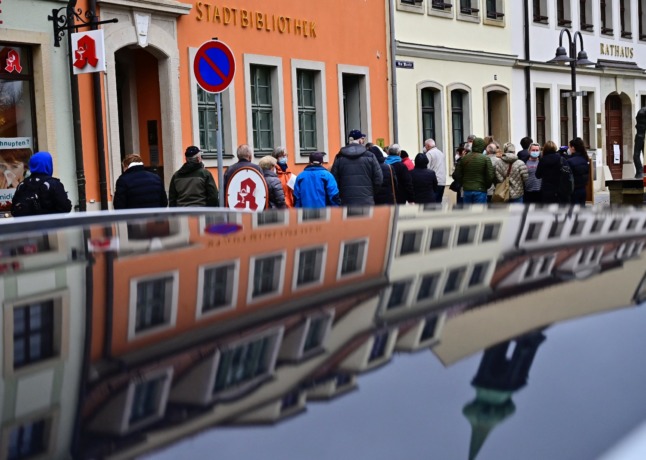The CDU politician spoke out about the unrest in the east German town during his speech, ‘For a Democratic Society and a Strong State,’ at the Saxony state parliament on Wednesday.
He also criticized the role of the media in the reporting of the events, saying that “there was no mob, no hunt and no pogroms”.
A minute of silence was held for Daniel H., the 35-year-old who was stabbed to death on the night of Sunday, August 26th, reports BILD. Two suspects are in custody, a third man is being hunted by authorities. Riots and days of protests were sparked in Chemnitz following his death.
“What happened that night is a terrible killing offence and must be cleared up with consistency and rigour,” said Kretschmer regarding the knife attack.
On the subject of police, Kretschmer said: “It would have been better on Monday if there were 100 or 200 more police officers in the city,” reports Welt. “But those who were there ensured security.”
Investigators of the crime were working for justice, said Kretschmer, who thanked officials for their action in Chemnitz. He furthermore discussed measures being taken, such as the concept for a zero tolerance strategy, reports DPA.
During the speech Kretschmer also called for the fight against right-wing extremist tendencies to be stepped-up, reports Spiegel.
He said: “I am convinced that right-wing extremism is the greatest threat to our democracy. So far, it has not been possible to definitively put right-wing extremism in Saxony in its place.
Kretschmer expressed criticism over the reporting of the incidents.
“There was no mob, no hunt and no pogroms,” he said, questioning reports that groups of far-right extremists had hunted people with a migrant background through the city.
He also raised concern about other reports or comments online.
“It's not okay for those who are far away to make a particularly hard and blanket judgment on the city of Chemnitz,” he said.
SEE ALSO: Merkel: 'Far-right protestors and neo-nazis do not stand for Chemnitz or Saxony.'
Previously, videos had been posted on the Internet that showed how several men ran after people who looked foreign. Many media organizations referenced the videos and used words like “mob”.
Chancellor Angela Merkel had said after the events, in late August, that the video footage had showed hunts.
“We have video recordings of [people] hunting down others, of unruly assemblies, and hate in the streets, and that has nothing to do with our constitutional state,” she said.
The Attorney General's Office in Dresden announced a few days ago that the evaluation of the videos was not yet completed, DPA reports.
However, a spokesman said: “In the part we have already seen, there was no evidence to suggest that such hunts could have happened.”
Merkel's government spokesman Steffen Seibert then added, “But the filming does show how people of foreign descent were subsequently repressed and how they were threatened.”




 Please whitelist us to continue reading.
Please whitelist us to continue reading.
Member comments